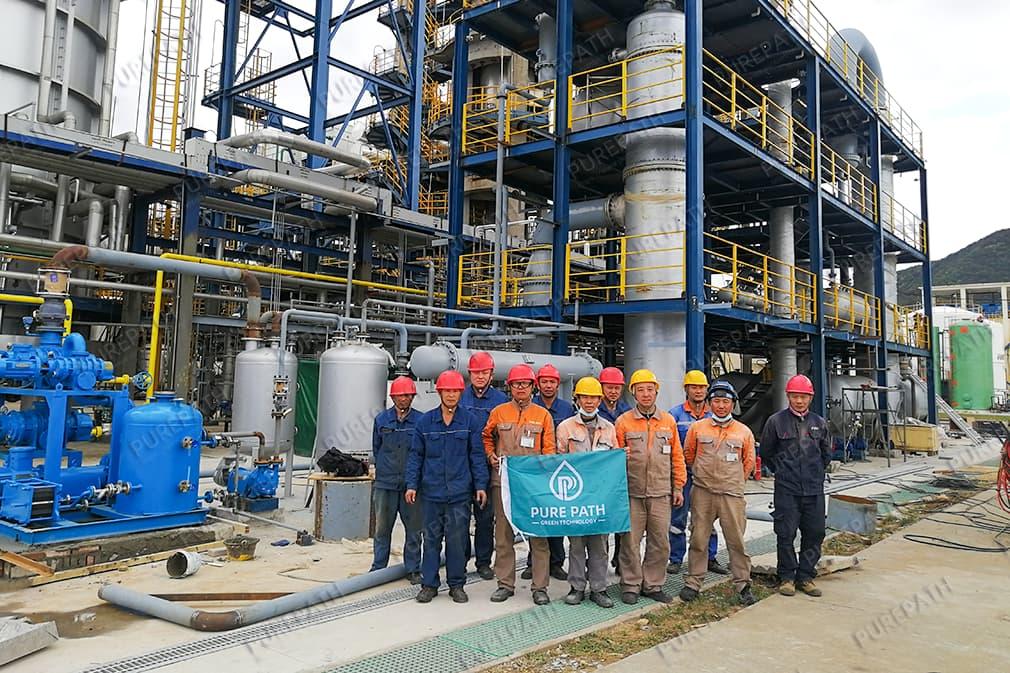The Importance of Feedstock Quality in Waste Oil to Base Oil Plants

The quality of feedstock, or the waste oil used as raw material, is a critical factor in determining the efficiency and output of a waste oil to base oil plant. Not all waste oil is created equal, and understanding the nuances of feedstock quality can significantly impact the success of the recycling process.
1. Variability in Waste Oil Composition
Waste oil can originate from various sources, including automotive engines, industrial machinery, and hydraulic systems. Each source introduces different contaminants, such as dirt, metal particles, and chemical additives, which affect the recycling process. For instance, used motor oil may contain higher levels of soot and oxidation by-products, while industrial lubricants might have more water and sludge. Understanding these variations is essential for tailoring the recycling process to achieve optimal results.
2. Pre-Treatment Requirements
The quality of feedstock directly influences the pre-treatment steps required before the oil can be converted into base oil. High-quality feedstock with minimal contamination may only need basic filtration and dehydration, while heavily contaminated oil may require extensive pre-treatment, such as de-asphalting or chemical treatment. Investing in robust pre-treatment systems ensures that the feedstock is adequately prepared for the main conversion process, reducing the risk of equipment damage and improving overall efficiency.
3. Impact on Base Oil Yield and Quality
Feedstock quality directly affects the yield and quality of the base oil produced. Contaminants like heavy metals and oxidation by-products can degrade the base oil’s performance characteristics, such as viscosity index and thermal stability. By sourcing higher-quality feedstock or implementing rigorous pre-treatment processes, operators can maximize the yield of premium-grade base oil, which commands a higher market value.
4. Economic and Environmental Considerations
Using low-quality feedstock can increase operational costs due to higher energy consumption, additional processing steps, and increased waste generation. Conversely, high-quality feedstock reduces these costs and minimizes the environmental impact of the recycling process. Establishing partnerships with reliable waste oil suppliers and implementing strict quality control measures can ensure a consistent supply of suitable feedstock.
In conclusion, feedstock quality is a cornerstone of successful waste oil to base oil conversion. By prioritizing the selection and pre-treatment of high-quality feedstock, operators can enhance the efficiency, profitability, and sustainability of their recycling plants.
- Art
- Causes
- Crafts
- Dance
- Drinks
- Film
- Fitness
- Food
- Игры
- Gardening
- Health
- Главная
- Literature
- Music
- Networking
- Другое
- Party
- Religion
- Shopping
- Sports
- Theater
- Wellness


